Colus griseus (Dall, 1890)Common name(s): Gray whelk |
|
| Synonyms: Plicifusus griseus | 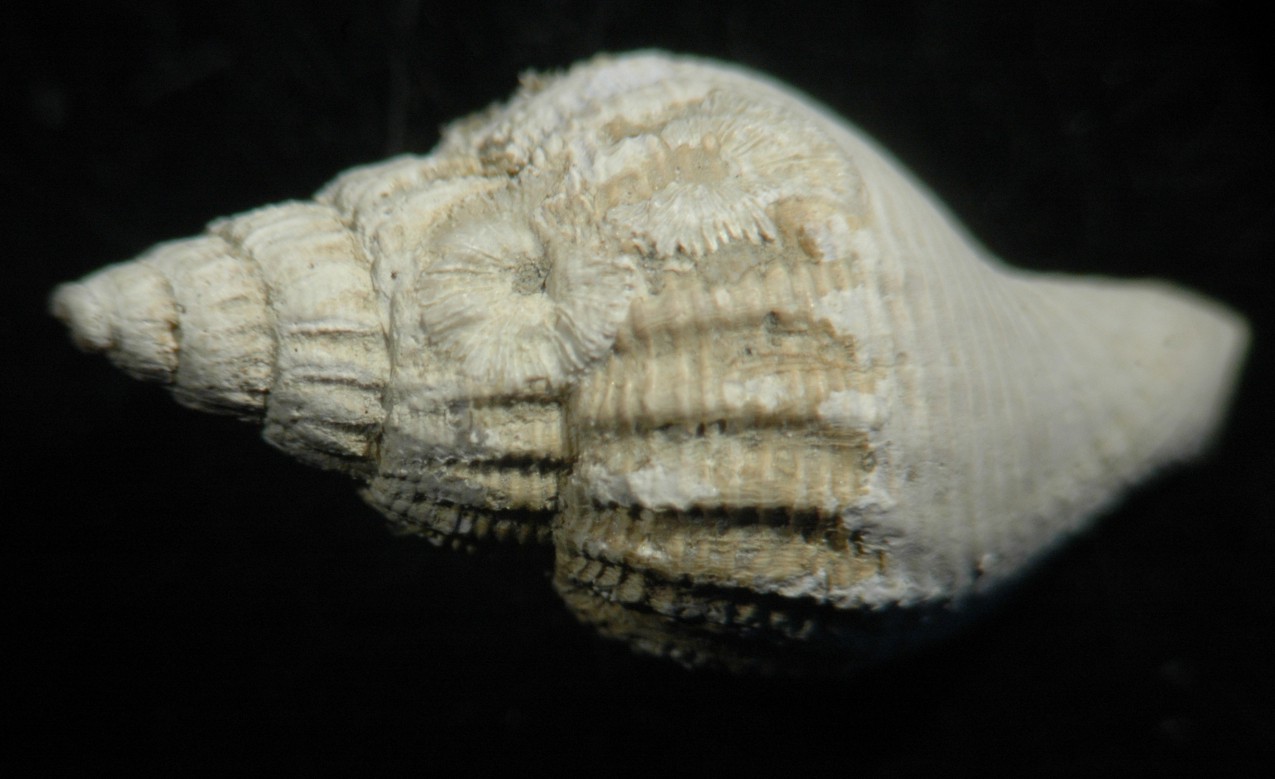 |
|
Phylum Mollusca
Class Gastropoda
Order Neogastropoda
Suborder Rachiglossa
|
|
| Colus griseus shell collected dead from a red octopus (Octopus rubescens) midden. Shell height is 1.5 cm, width 0.7 cm. | |
| (Photo by: Dave Cowles, March 2008) | |
How to Distinguish from Similar Species: Mohnia freilei, another rare subtidal species, has 12-15 axial ribs per whorl and only reaches 1.8 cm height.
Geographical Range: Pacific
Depth Range:
Habitat:
Biology/Natural History: This is a rare subtidal species.
While Kozloff (1987, 1996) classify this species in
Family Neptuneidae,
The American Fisheries Society (1998) and ITIS (2008) place it in
family
Buccinidae.
| Return to: | |||
| Main Page | Alphabetic Index | Systematic Index | Glossary |
References:
Dichotomous Keys:Kozloff 1987, 1996 (as Plicifusus griseus in family Neptuneidae)
General References:
American
Fisheries Society, 1998
Scientific
Articles:
Web sites:
General Notes and
Observations: Locations,
abundances, unusual behaviors:
I have not found this species near Rosario, but
apparently red
octopus have because this was in the beer bottle midden of a red
octopus
at about 18 m depth on Whidbey Island.
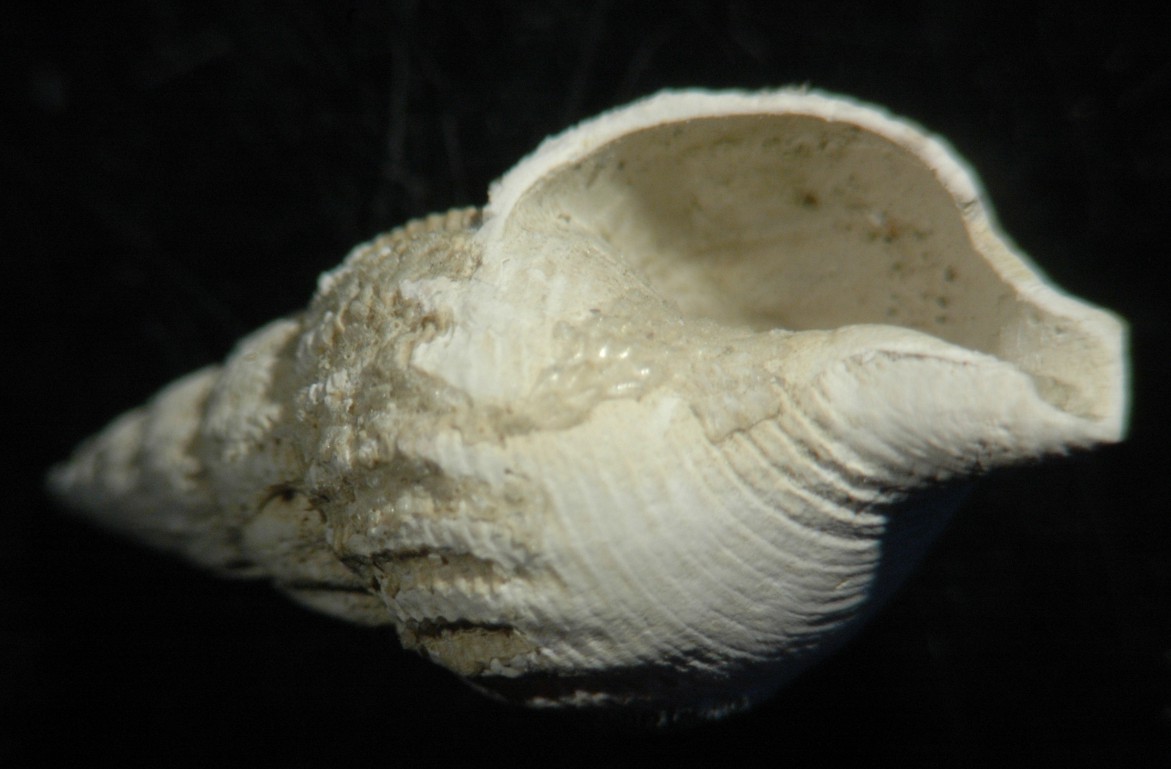
This photo shows the aperture. The shell has
obviously been dead
for awhile and has the remnants of a bryozoan growing within the aperture
as well as some missing shell on the outer lip of the aperture.
Note how the axial
ribs disappear on the anterior half of the body
whorl, while the finer spiral
ridges are still visible.
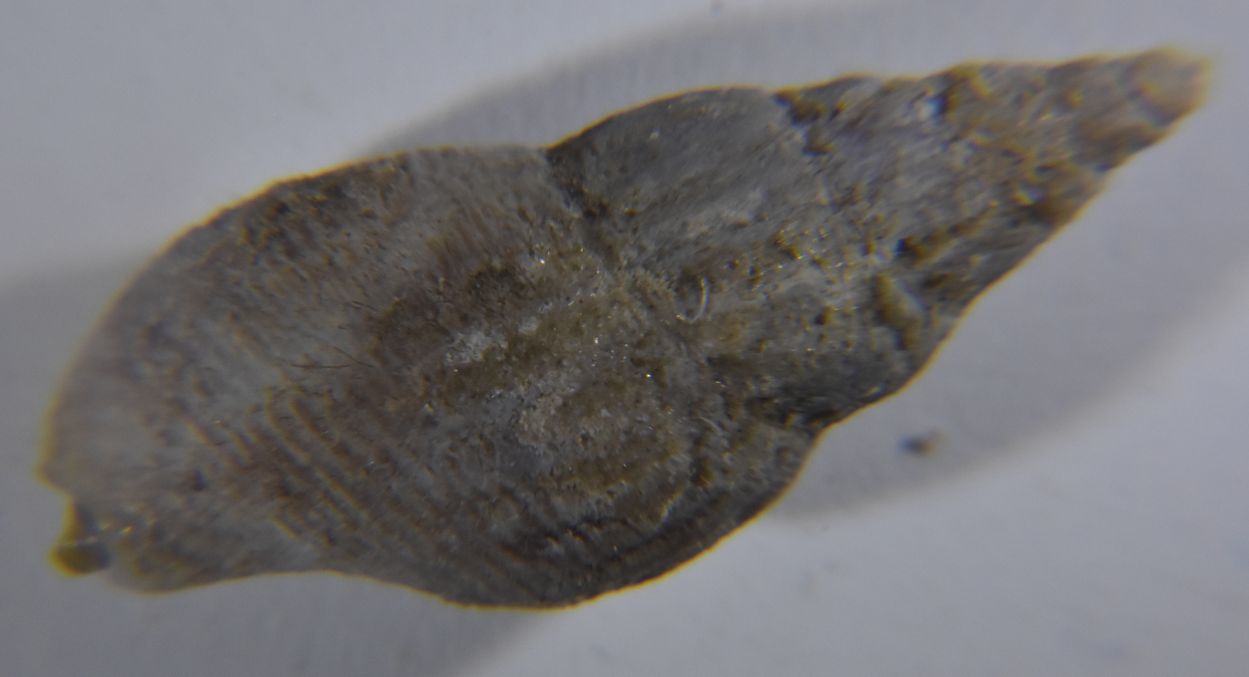
This live individual is 2.4 cm long.
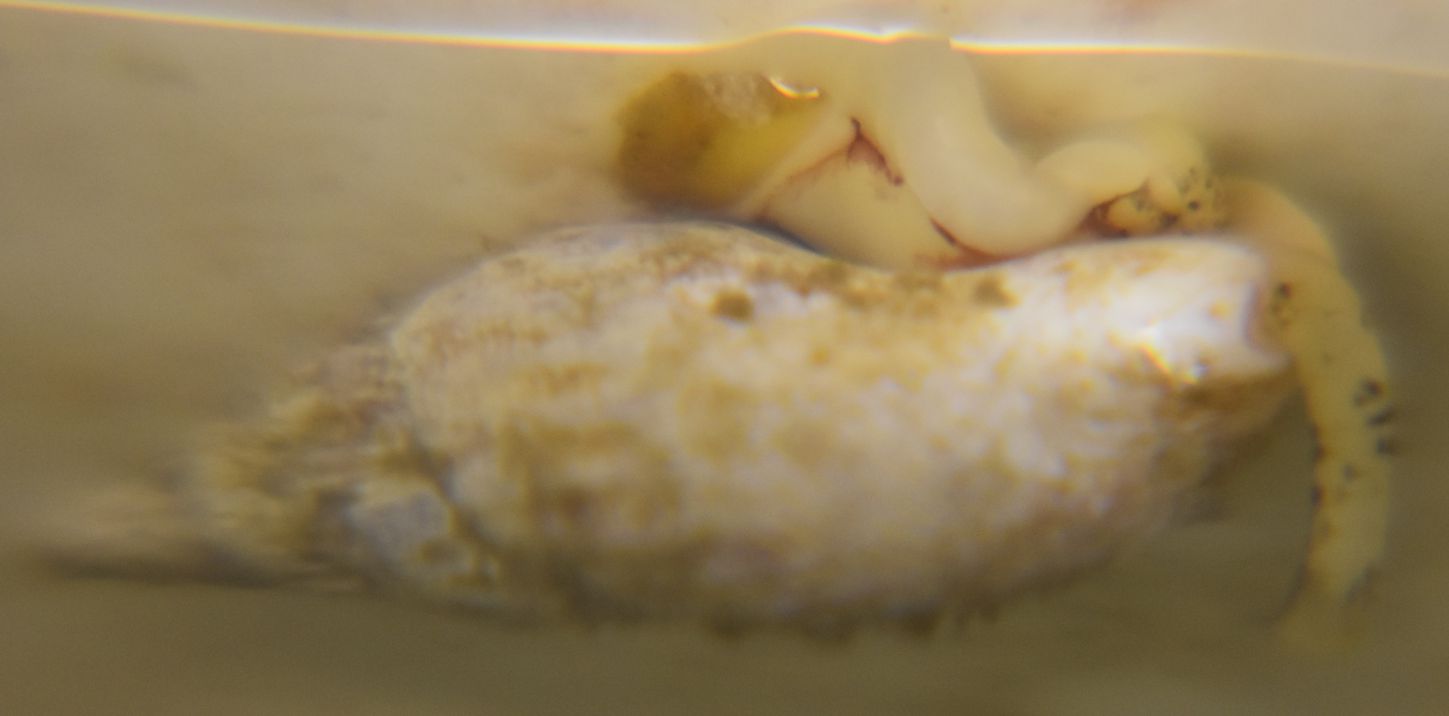
Here
is the same individual, crawling along the side of an aquarium at the
surface of the water. Note the extended siphon and the whitish foot
with a horny operculum. Photo by Dave Cowles, August 2018
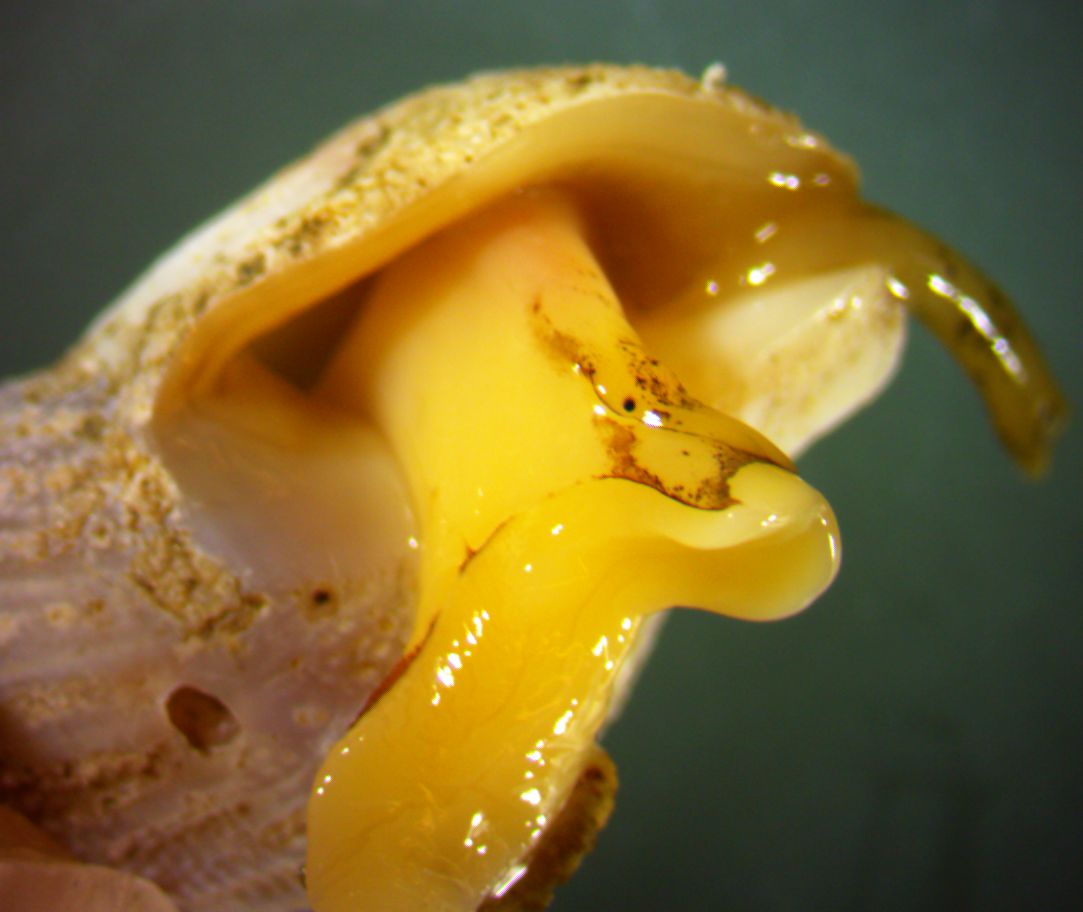 This
individual (the same as the 2.4 cm one above) seems perfectly willing
to gradually come out of the shell when I hold it upside-down. .Here
the foot, head with eye, and inhalant siphon can be clearly seen
stretching from the aperture as I hold the shell. Note the hole nearly
bored through the shell near the rear of the foot. Photo by Dave
Cowles, August 2018
This
individual (the same as the 2.4 cm one above) seems perfectly willing
to gradually come out of the shell when I hold it upside-down. .Here
the foot, head with eye, and inhalant siphon can be clearly seen
stretching from the aperture as I hold the shell. Note the hole nearly
bored through the shell near the rear of the foot. Photo by Dave
Cowles, August 2018
Authors and Editors of Page:
Dave Cowles (2008): Created original page
CSS coding for page developed by Jonathan Cowles (2007)